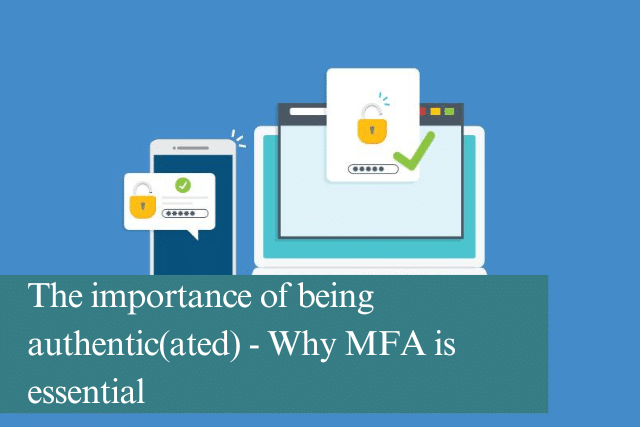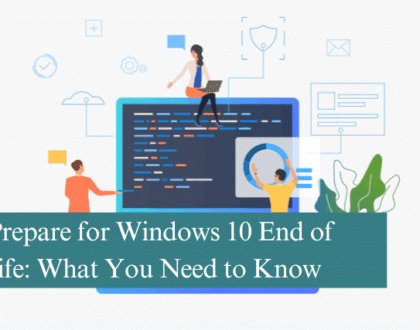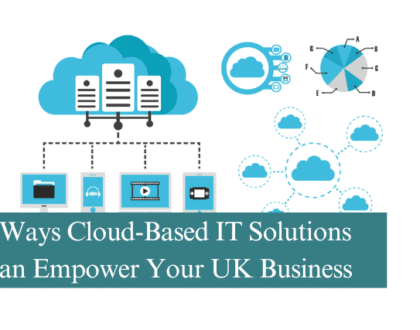
9th August 2024
Cyber threats are more sophisticated than ever, with hackers using advanced techniques to breach even the most secure systems. Multi-Factor Authentication (MFA) is a great line of defence.
Understanding Multi-Factor Authentication
What is MFA?
Multi-Factor Authentication (MFA) is a security system that requires multiple forms of verification before granting access to an account or system. Unlike traditional single-factor authentication (usually a password), MFA typically combines two or more of the following:
- Something you know: Password or PIN
- Something you have: Smartphone, security token, or smart card
- Something you are: Biometrics like fingerprints, facial recognition, or retina scans
How Does MFA Work?
MFA adds an extra layer of security by requiring the user to provide multiple credentials. For example, after entering a password (something you know), you might receive a code on your smartphone (something you have) or need to use your fingerprint (something you are). This multi-layered approach significantly reduces the risk of unauthorised access.
The Growing Threat
Increasing Cyber Threats
Cybercrime is on the rise, with data breaches, ransomware attacks, and phishing schemes becoming increasingly common. Hackers are constantly developing new methods to exploit vulnerabilities in systems, making robust security measures more critical than ever.
Weak Passwords Are Not Enough
Despite warnings, many users still rely on weak or easily guessable passwords. Common practices like reusing passwords across multiple sites exacerbate the problem. Single-factor authentication, primarily password-based systems, is no longer sufficient to protect sensitive data.
Why MFA is Essential
Enhanced Security
MFA provides an added layer of security that makes it significantly more difficult for attackers to gain unauthorised access. Even if a hacker manages to steal a password, they would still need the additional authentication factors, which are much harder to compromise.
Protecting Sensitive Information
For businesses, protecting sensitive information is not just about safeguarding internal data but also about maintaining customer trust. Breaches can lead to significant financial losses, legal repercussions, and damage to reputation. MFA helps mitigate these risks by ensuring that only authorised users can access sensitive data.
Compliance with Regulations
Many industries are subject to strict regulatory requirements regarding data protection. Implementing MFA can help organisations comply with these regulations and avoid hefty fines and legal issues. Regulatory frameworks like GDPR, HIPAA, and PCI-DSS often mandate strong authentication measures.
Preventing Identity Theft
Identity theft is a growing concern for individuals and businesses alike. MFA makes it much harder for cybercriminals to steal personal information and use it for fraudulent activities. By requiring multiple forms of verification, MFA ensures that even if one factor is compromised, unauthorised access is still prevented.
Implementing MFA: Best Practices
User Education and Training
Educating users about the importance of MFA and how to use it effectively is crucial. Training programs can help users understand the benefits of MFA and encourage them to adopt it as a standard practice.
Selecting the Right MFA Solution
Not all MFA solutions are created equal. It’s essential to choose a solution that fits the specific needs of your organisation. Factors to consider include ease of use, compatibility with existing systems, and the level of security provided.
Continuous Monitoring and Improvement
Implementing MFA is not a one-time effort. Continuous monitoring and regular updates are necessary to ensure that the system remains effective against evolving threats. Periodic reviews and adjustments can help maintain a robust security posture.
The Role of Managed IT Services
Why Choose Managed IT Services?
Implementing and maintaining MFA can be complex and resource-intensive. This is where managed IT services come in. By partnering with a managed IT service provider, organisations can benefit from expert guidance and support, ensuring that their MFA implementation is both effective and efficient.
Benefits of Managed IT Services
- Expertise and Experience: Managed IT service providers have the expertise and experience needed to implement MFA solutions tailored to your organisation’s needs.
- Cost-Effective: Outsourcing IT services can be more cost-effective than maintaining an in-house team, especially for small and medium-sized businesses.
- Ongoing Support: Managed IT services provide continuous support, ensuring that your MFA system is always up-to-date and functioning correctly.
Conclusion: Stay Secure with MFA and Managed IT Services
In today’s digital landscape, robust security measures are essential. Multi-Factor Authentication (MFA) is a critical component of a comprehensive security strategy, offering enhanced protection against unauthorised access and cyber threats. By partnering with managed IT services, organisations can ensure the effective implementation and maintenance of MFA, safeguarding their sensitive information and maintaining customer trust.
Contact us to learn more about our managed IT services and how we can help you implement a robust MFA solution tailored to your needs. Stay secure, stay protected, and let us handle your IT security so you can focus on what you do best.
Recommended Posts

Prepare for Windows 10 End of Life: What You Need to Know
18th July 2025

5 Ways Cloud-Based IT Solutions Can Empower Your UK Business
12th July 2025

Are you making the most of your Microsoft 365 licensing?
4th July 2025
